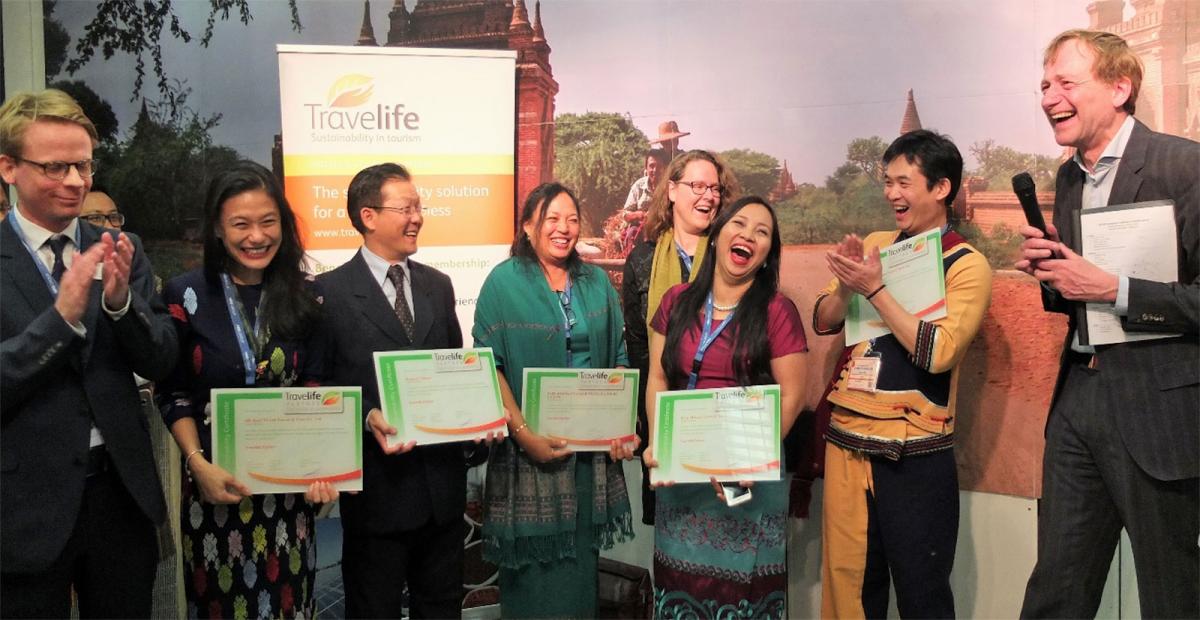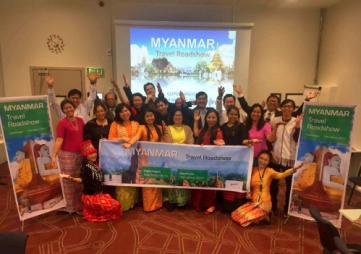Gender in Myanmar tourism

“There is no tool for development more effective than the empowerment of women” – Kofi Annan
Myanmar was ruled by the military for many years, until a new constitution in 2011 formally ended military rule. Throughout history, women were seen as housewives and considered inferior. But change is coming, as can be seen in the CBI Sustainable Tourism Development Asia programme, where 8 out of 15 companies are managed or owned by women.
The CBI programme aims to support selected tour operators in six Asian countries to create more sustainable business and employment. Two participants of the CBI programme are Silk Road to Asia Travels & Tours Co. Ltd, which is managed by Myat Su, and River Mekong Travels & Tours Co. Ltd, which is owned by Nwai.
More women in tourism
In recent years, Myanmar has undergone a positive trend where female entrepreneurship is encouraged to take big steps forward. Especially the tourism sector has seen an increase of female employees, since in Myanmar hospitality and service are considered to be something women have a natural talent for. Moreover, Myat Su mentioned that the increasing presence of females in the tourism sector has been an incentive for a lot of other girls to go to work and ‘stand on their own feet’.

‘CBI inspires’
Nwai and Myat Su consider CBI’s expertise valuable. In this programme, they enjoy coaching in terms of learning to analyse the European market and developing new products. They learn how to deal with the needs of European travellers. For example, CBI expert Marlon van Hee has helped Nwai to give more focus to the hospitality services she extends. Additionally, to have been assigned a female programme director is perceived as ‘female role model training’ and has contributed to a rise in confidence among the participants. Myat Su even tackled her previous doubts by saying that “CBI inspired me to know that I can do it and I can actively involve myself in society to position myself. It made me aware that women can lead the way”. CBI has given them vision in how to best deal with men through mental coaching and the coaches, male and female, have been very understanding.
However, despite the fact that Myanmar is a female-friendly country, the country is not there yet. Nwai addressed that she “needs to gain the trust of dominant men” and that she is still confronted with the fact that she “needs to prove herself first by speaking the language of the guys” before she is taken seriously. Her knowledge is always questioned at first but she acknowledges that this female-male relationship is an international problem.
Empowering legislation

Furthermore, there are still a lot of girls in Myanmar who are restricted by their parents to go and work after certain hours. This results in men being the preferable choice for those jobs where the need for overtime workers is high. Nonetheless, “the democratic governmental change has led to more transparency and regulations which empower women in great length!”, Nwai said. Myanmar is still in the transition phase of gender equality. CBI is pleased to contribute to this transition by giving training to their participating companies. This plays a significant role in giving them the confidence and determination to further their entrepreneurship.